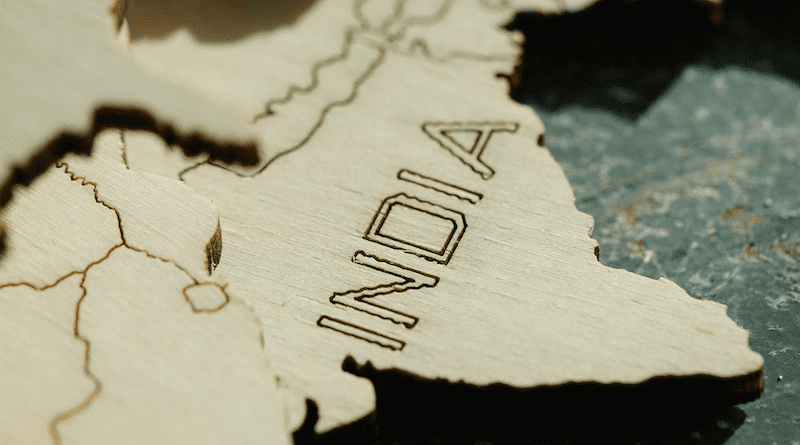The Dark Underbelly Of Hindu Nationalist Groups – OpEd
Hindu religious organizations Vishva Hindu Parishad (VHP) and its American counterpart, Vishva Hindu Parishad America (VHPA), have attracted significant attention due to their involvement in militant activities and anti-Muslim sentiments. The designation of both VHP and VHPA as “militant religious organizations” by the Central Intelligence Agency (CIA) in the World Factbook underscores the concerns surrounding their actions and ideologies.
VHP, established in India, can be traced back to 1954 when M. S. Golwalkar, the chief of the Rashtriya Swayamsevak Sangh (RSS), collaborated with Swami Chinmayananda to create the organization. VHP’s stance has been closely aligned with Golwalkar’s anti-Muslim ideology, leading to accusations of propagating religious extremism. This pattern was mirrored in the creation of VHPA in 1970 in New York, co-founded by Dr. Mahesh J Mehta and other workers of RSS. The inspiration for VHPA came from Golwalkar’s teachings, further solidifying its alignment with the extremist ideology.
Both VHP and VHPA have faced criticism for their involvement in militant activities and anti-Muslim campaigns. VHP’s role in the demolition of the Babri Mosque in Ayodhya in 1992 and its subsequent participation in the violent riots that resulted in the death of over 2,000 Muslims raised concerns about their agenda. Similarly, VHPA’s active propagation of religious extremism, primarily targeting Muslims, has attracted the spotlight. The organizations have also been linked to the promotion of Islamophobia, which has led to growing tensions in their respective countries.
VHP and VHPA have consistently provided platforms for far-right Hindu nationalist leaders who espouse extremist views. Ashok Singhal, a senior VHP leader known for his anti-Muslim rhetoric, has been a regular guest at their events. This aligns with their attempts to support voices against the persecution of Muslims and bolster the rising wave of Hindu nationalism. However, their associations with such figures have drawn criticism for fueling violence and division.
The Bajrang Dal (BD), formed in 1984, is the youth militant wing of the Vishva Hindu Parishad (VHP), operating within the right-wing Sangh Parivar. Rooted in Hindutva, BD has expanded significantly in India, particularly in the north and central regions. With 2,500 akhadas similar to RSS branches, it’s named after the deity Hanuman.
Despite its motto of “Service, Safety, and Culture,” BD’s actions differ. It seeks to build disputed temples like Ram Mandir in Ayodhya and Krishna Janmabhoomi in Mathura. BD led the Babri mosque demolition. Opposing Muslim growth, beef trade, and western influence, BD’s violence, including lynching Muslims over beef suspicions, fuels social unrest. VHP, VHPA and BD share extremist Hindu nationalist ideologies. Like VHP and VHPA, BD promotes Hindutva, often harming minorities like Muslims. Its role in the Babri mosque demolition and violence accentuates its ties to other groups, escalating religious tensions in India.
VHPA has global outreach and controversial claims its reach extends beyond American shores, with 21 chapters spread across the United States. The organization operates as an extensive infrastructure, reminiscent of VHP in India, with a multitude of projects and initiatives. Among these, Ekal Vidyalaya Foundation, Hindu Students Council, and Hindu Mandir Executives Conference stand out. However, VHPA’s controversial claims and promotion of conspiracy theories, particularly those targeting Muslims, have raised alarms.
VHPA’s financial support to Hindu far-right extremist organizations in India, including VHP Foundation and others, has come under scrutiny. The Ekal Vidyalaya Foundation, established by VHPA to aid RSS in India, has raised over $60 million in a decade, predominantly benefiting tribal and rural areas. Nevertheless, accusations of promoting Hindu nationalist ideologies and anti-minority hate through these channels have cast a shadow over their intentions.
VHPA’s alignment with certain political figures and policies has sparked controversy. The organization’s endorsement of anti-Muslim policies advocated by Indian Prime Minister Narendra Modi, such as the National Register of Citizens (NRC) and the Citizenship Amendment Act (CAA), has drawn international criticism. These measures have been denounced for their discriminatory nature, with concerns over their potential to disenfranchise Indian Muslims.
VHPA has been involved in campaigns to suppress academic discussions and conferences critical of their ideologies. Their efforts to halt the “Dismantling Global Hindutva” conference and subsequent threats against organizers and participants have ignited debates about academic freedom and the right to express differing viewpoints. Dr. Audrey Truschke, an Associate Professor of South Asian History at Rutgers University, has characterized VHPA as a hatemonger, highlighting their encouragement of militant behavior. The organization’s alignment with the extremist ideologies of its Indian parent group raises concerns about their influence on individuals and communities.
The activities and ideologies of Vishva Hindu Parishad (VHP) and Vishva Hindu Parishad America (VHPA) have evoked both national and international discussions due to their alleged involvement in militant activities and promotion of anti-Muslim sentiments. As controversies continue to surround these organizations, it becomes imperative to scrutinize their actions, motivations, and impact on communal harmony and religious freedom in India and the United States.


she is not a scholar. she is a hate monger and she is spreading lies, misinformation and creating animosity in society. she needs to provide proofs of militancy. protecting one’s faith against aggression is NOT militancy.
G 20 under the presidency of India is holding interfaith summit from 5 to 7 september in PUNE it indicates and means something.Student of Defense and Strategic Studies are being encouraged to write Hate India articles and being indocterined into being anti India haters.Write someting better for your sinking country.
How this piece pathetic and frivolous piece by Asma Khan Durrani can be passed on as writing of a scholar is difficult to comprehend.